Killing the death penalty
Alumni lead the charge to end four centuries of capital punishment in Virginia
JMU News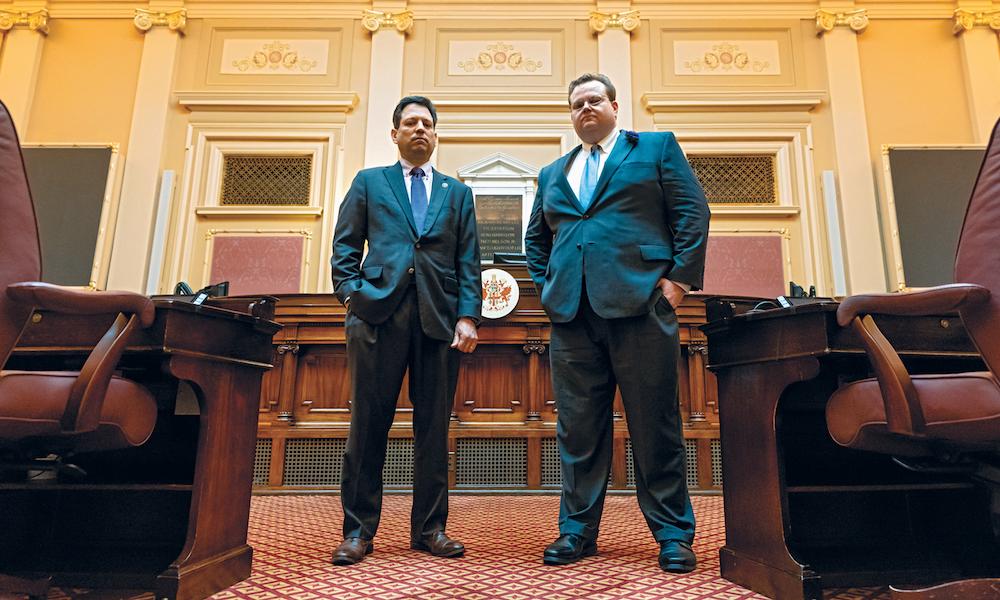
SUMMARY: Scott Surovell (’93) carried the legislation in the Virginia Senate, while classmate Doug Ramseur (’93), a capital defense attorney, testified before the Senate Judiciary Committee on behalf of the bill.
By Jim Heffernan (’96, ’17M)
In the spring of his senior year at JMU, Scott Surovell (’93) was summoned to President Ronald E. Carrier’s office.
“This was the era before email and texting, but somehow I got a message that President Carrier wanted to see me,” Surovell said.
 As vice president of the Student Government Association, Surovell and his colleagues had been critical of the administration’s allocation of money from student fees. But to his surprise, their conversation that day wasn’t about university finances or what was happening on campus. Instead, Carrier encouraged Surovell to apply to become a Governor’s Fellow.
As vice president of the Student Government Association, Surovell and his colleagues had been critical of the administration’s allocation of money from student fees. But to his surprise, their conversation that day wasn’t about university finances or what was happening on campus. Instead, Carrier encouraged Surovell to apply to become a Governor’s Fellow.
“There was a stipend involved, and frankly I didn’t have any other plans,” Surovell said, “so I applied and was accepted.”
That summer, while on a tour of facilities across the commonwealth, Surovell visited the state’s new execution chamber in the Greensville Correctional Center. The image of the electric chair in that room—Virginia had not yet adopted lethal injection—haunted him.
“I didn’t want to get anywhere near the thing,” Surovell said. “To me, it was creepy and disgusting.”
In retrospect, he said, the decision to show off the chamber to a group of young leaders from around the state spoke volumes about the prevailing attitudes toward the death penalty in Virginia at the time.
“Seeing all that made me hate it even more and want to do something about it,” he said.
The lawmaker
After interning on Capitol Hill for two congressmen, Surovell enrolled in law school at the University of Virginia, graduating in 1996. In 2002, he set up his own legal practice in Northern Virginia specializing in criminal, traffic and personal-injury cases as well as class-action and commercial litigation.
A year later, Surovell launched his political career, first in the local Democratic Party in Fairfax County, then as a state delegate beginning in January 2010. In 2015, he was elected to the Virginia Senate representing parts of Fairfax, Prince William and Stafford counties.
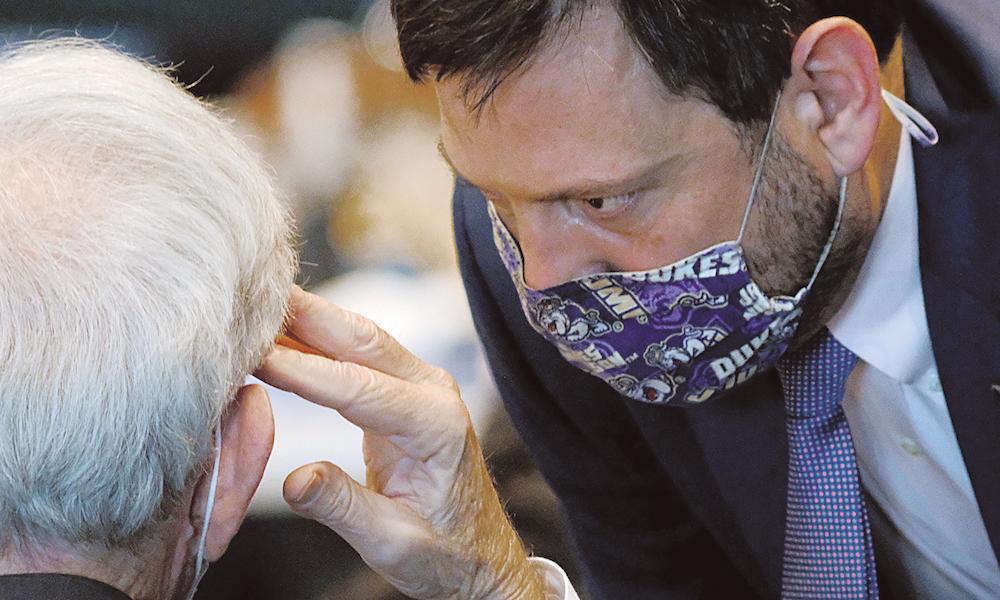
|
Surovell quickly established himself as a leading voice in Richmond in the area of criminal justice reform, introducing legislation to end Virginia’s use of the electric chair and later requiring the state to make known the chemicals used in lethal injection. In 2018, he carried a bill that authorized Virginia to pay $3.4 million for the wrongful incarceration of the so-called “Norfolk Four”—four Navy veterans who were convicted of the 1997 rape and murder of a woman in Norfolk, Virginia, and were threatened with the death penalty.
Heading into the 2021 legislative session, the prospect of ending more than four centuries of capital punishment in the commonwealth was promising. Surovell’s bill to abolish the practice had the backing of a Democratic majority in both houses of the legislature as well as Virginia Gov. Ralph Northam.
In February, the General Assembly voted in favor of both Surovell’s legislation and a separate but identical bill originating in the House of Delegates, largely along party lines. Northam signed the measure into law during a ceremony at Greensville Correctional Center in March, making Virginia the first Southern state to repeal the death penalty. It will take effect in July.
Public opinion on the issue of capital punishment—even among some family members of victims—has shifted in recent years, Surovell said. In 2020, polling indicated that 45% of Americans oppose the death penalty as a punishment for murder, and 56% of Virginians support abolition.
“It’s impossible to get a fair jury of your peers when half of them can’t sit [on the panel],” he said.
The system is also expensive, Surovell said. Virginia, which has executed more people than any other state and is second only to Texas in the number of state-sanctioned killings since 1976, spends about $50 million every 10 years to make the death penalty available to juries in capital murder cases. But jurors are increasingly reluctant to use it, he said.
The defender
Surovell’s classmate at JMU, Doug Ramseur (’93), kept his clients off death row for 17 years as an attorney with Virginia's Capital Defender Offices.
“When I started handling death penalty cases in my practice, my goal was to end the death penalty one case at a time … until we realized we just don’t need it in Virginia anymore,” he said.
Ramseur, who was a member of the JMU Debate Team, opposes capital punishment on moral and legal grounds.
“How ludicrous it is, in a civilized society, to think that we can decide whether someone lives or dies in some sort of formal and cordial way,” he said.
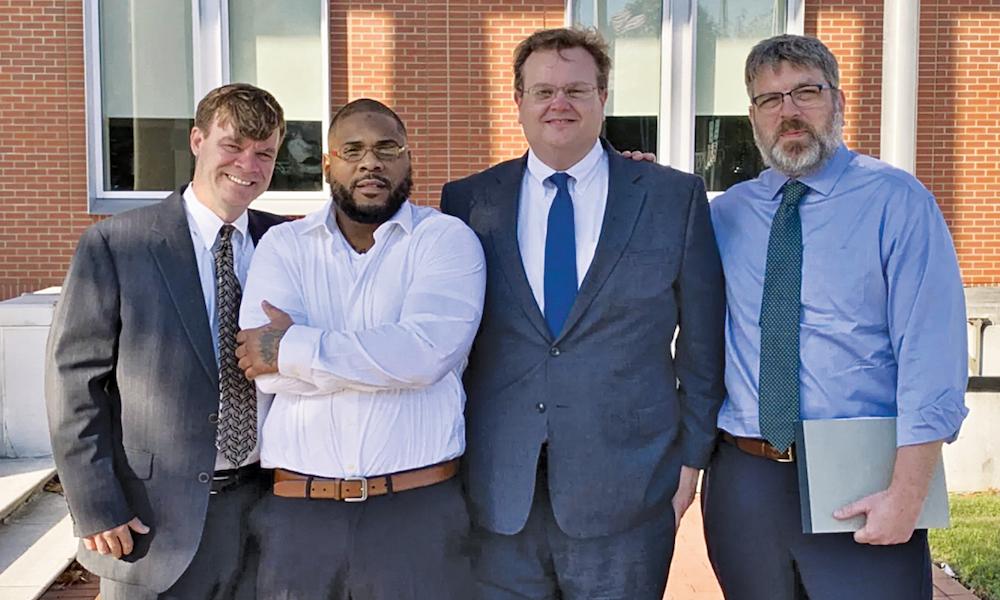
|
The death penalty reveals patterns of racial bias in the criminal justice system, Ramseur said. According to the Death Penalty Information Center, more than 75% of the murder victims in cases resulting in an execution were white, even though nationally only 50% of murder victims generally are white. According to Northam, 79% of people executed by the state of Virginia in the 20th century were Black.
The system also values rich people over poor people, Ramseur said. “I’ve represented all kinds of people in my career—white, Black, women, the mentally ill and the innocent. I’ve never once represented a rich person charged with a capital offense.”
Then there’s the issue of wrongful conviction. Studies have shown that 1 in 10 defendants in capital murder cases is, in fact, innocent.
Since Virginia established Capital Defender Offices in 2002 to provide legal counsel for defendants who otherwise could not afford it, Ramseur has represented 30 people charged with capital offenses. None received the death penalty.
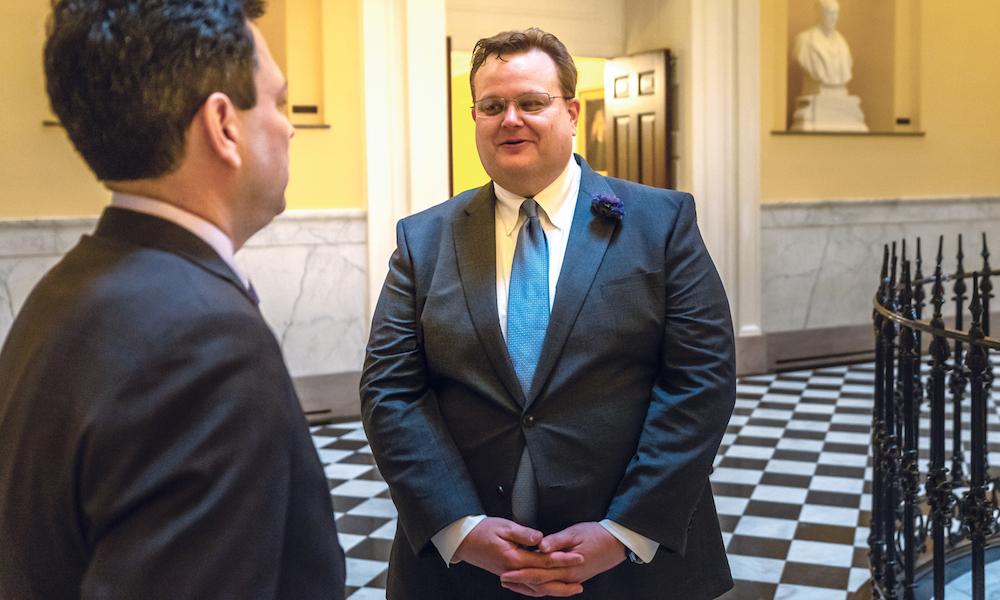
|
"Once we started spending real money on capital defense and a group of lawyers—like Doug—who were exclusively focused on that, the number of capital murder convictions in the state has dropped significantly."
— Scott Surovell ('93)
In September 2020, Ramseur served as lead defense counsel in what will likely turn out to be the last capital murder case in Virginia history. “It was a case I worked on for three-and-a-half years,” he said. Ultimately, the charges against his client were dismissed.
Despite both being political science majors at JMU, Surovell and Ramseur did not cross paths professionally until 2015 while advocating for a new law to allow defense teams to gain access to more evidence before going to trial. Ramseur testified before the Senate Judiciary Committee in February on behalf of Surovell’s bill to repeal the death penalty.
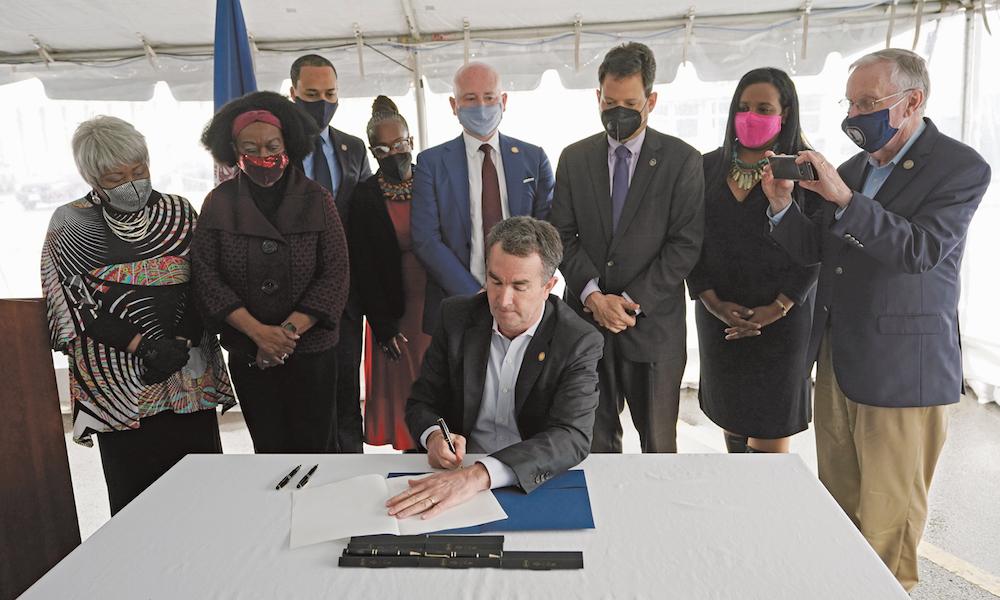
|
Surovell said the legislation, while a significant milestone, will not be his signature accomplishment as a lawmaker. “These cases tend to be high-profile and attract a lot of attention, but I’ve carried bills that have helped far more people,” he said, citing his support for expanding Medicaid in Virginia, granting driver’s licenses to 300,000 undocumented immigrants in the state and forcing Dominion Resources to spend billions to clean up coal ash along the James, Elizabeth and Potomac rivers.
“I hope the voters allow me to continue serving,” he said.
For Ramseur, who founded The Ram Law Firm last year, the end of the death penalty in Virginia marks the closing of a significant chapter in his professional life.
“This is a career-defining moment for me,” he said. “I’ve spent my whole career trying to accomplish this. Now I’m going to have to figure out what my second act is.”

